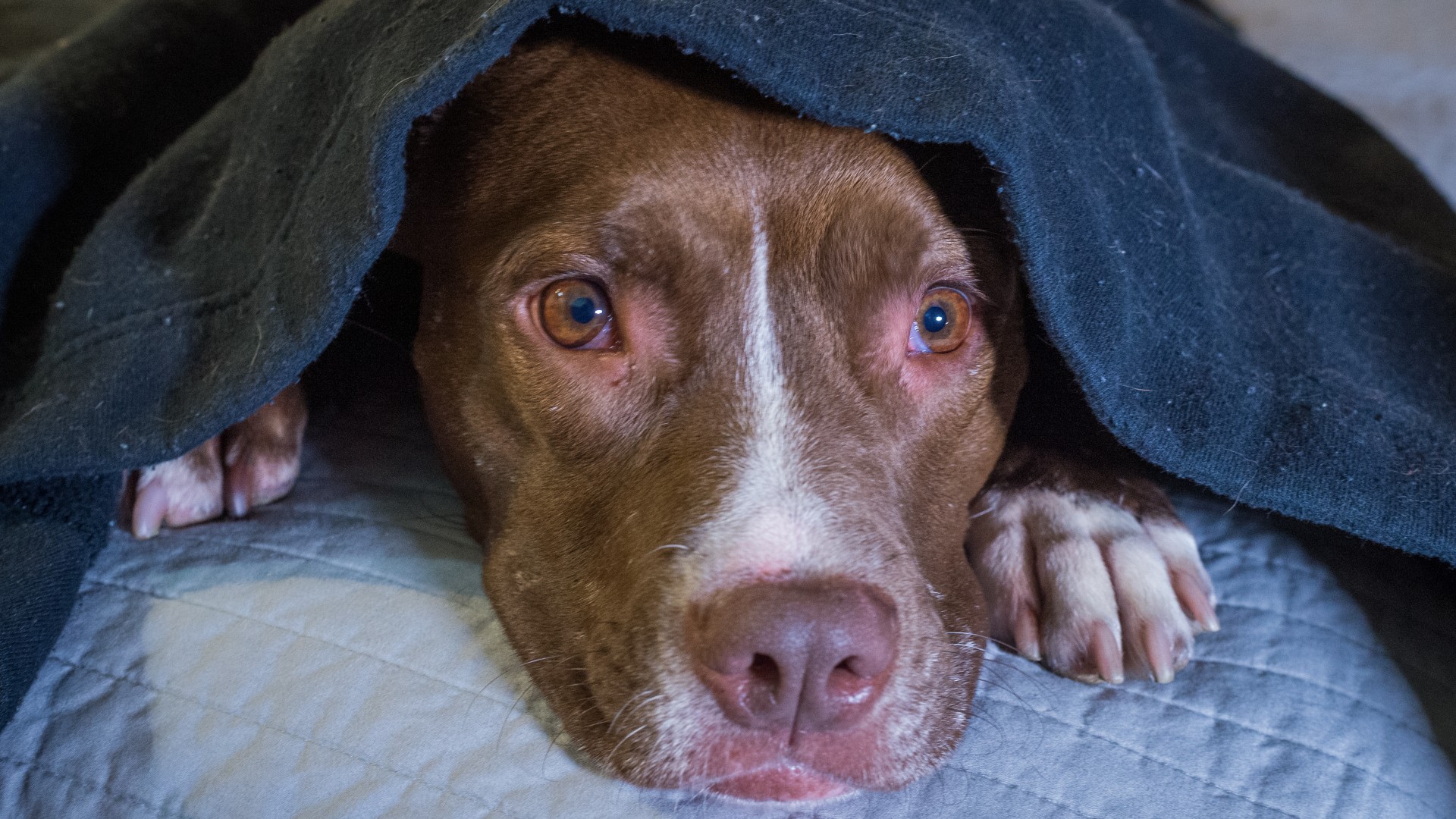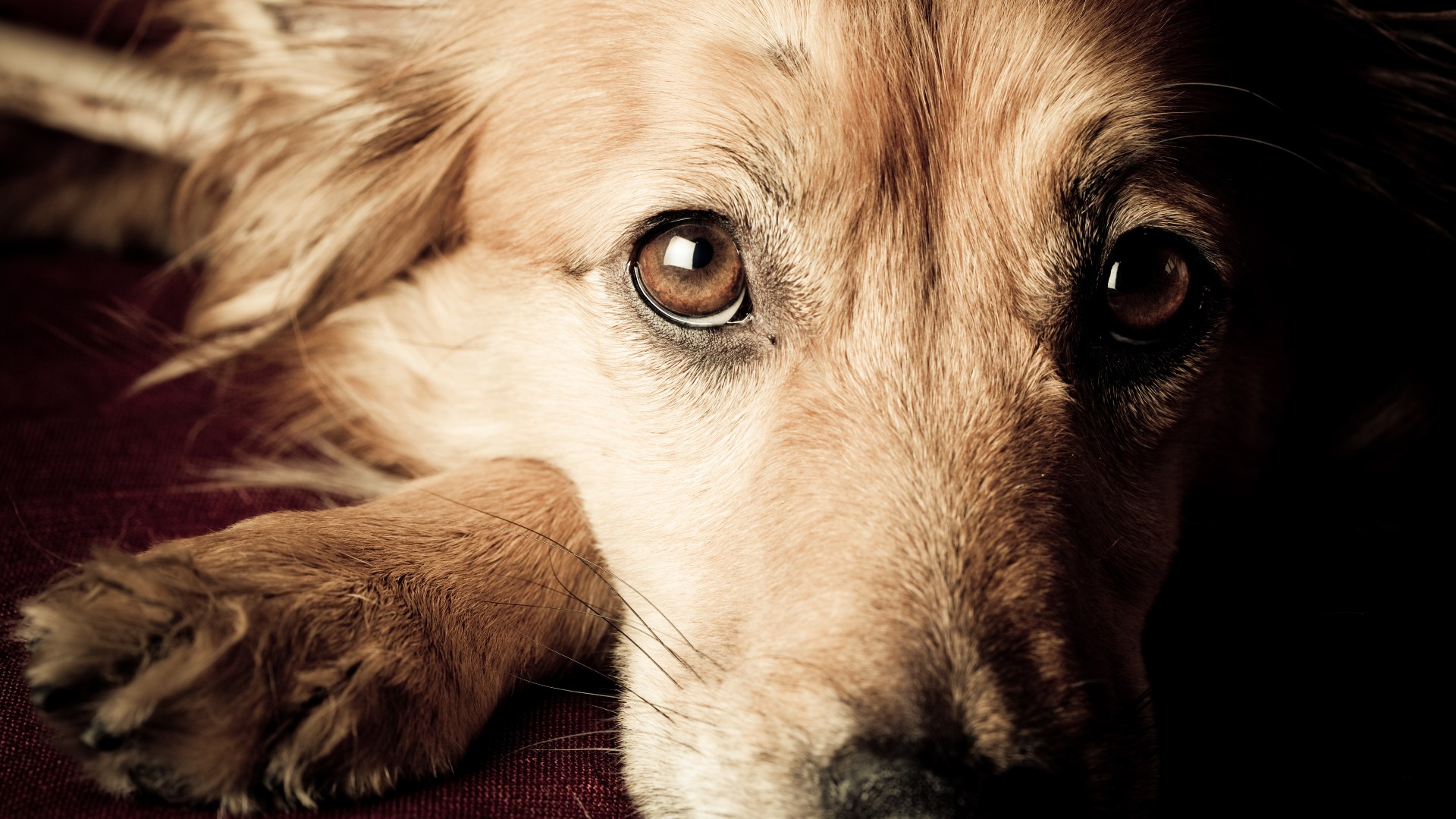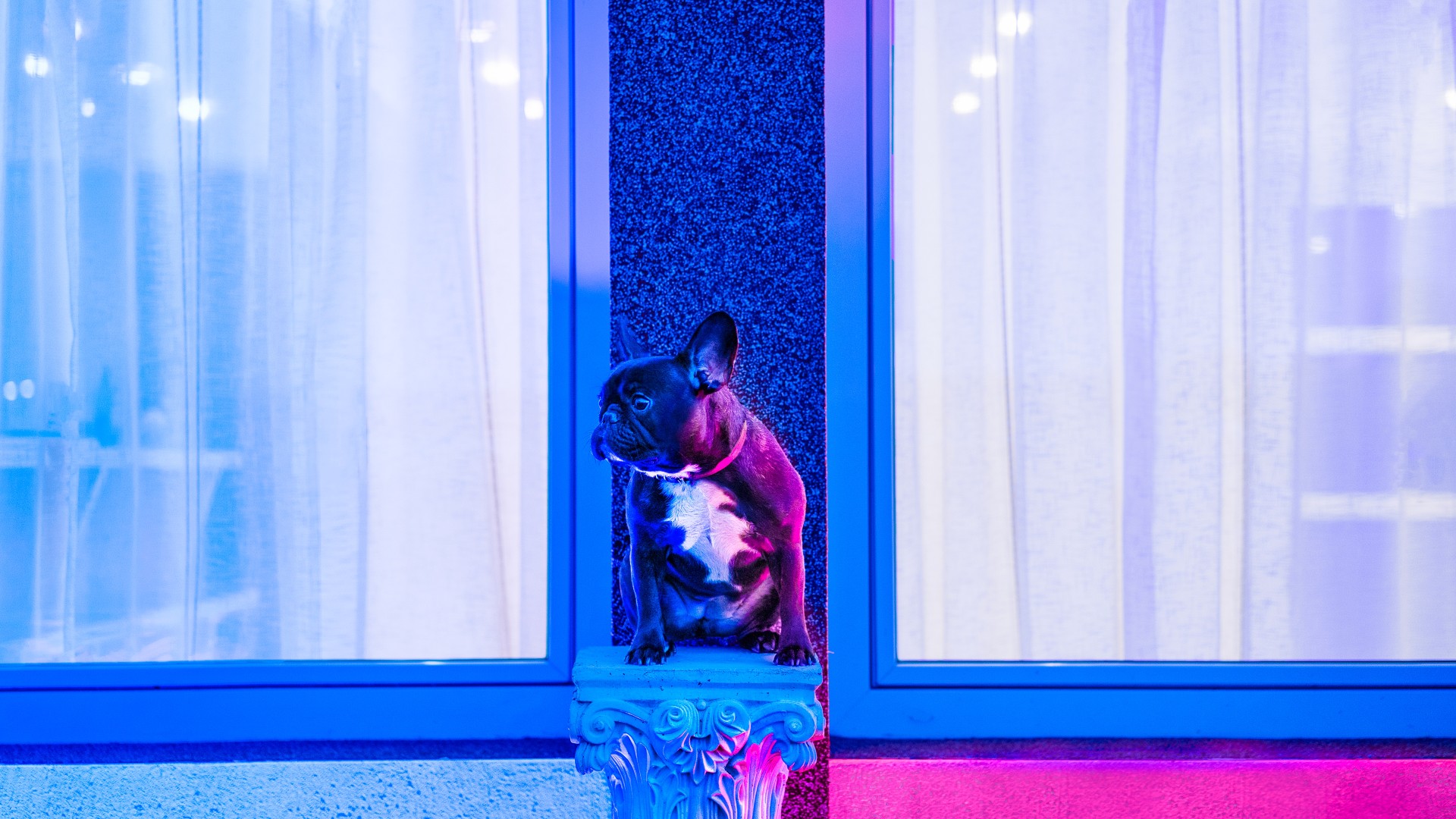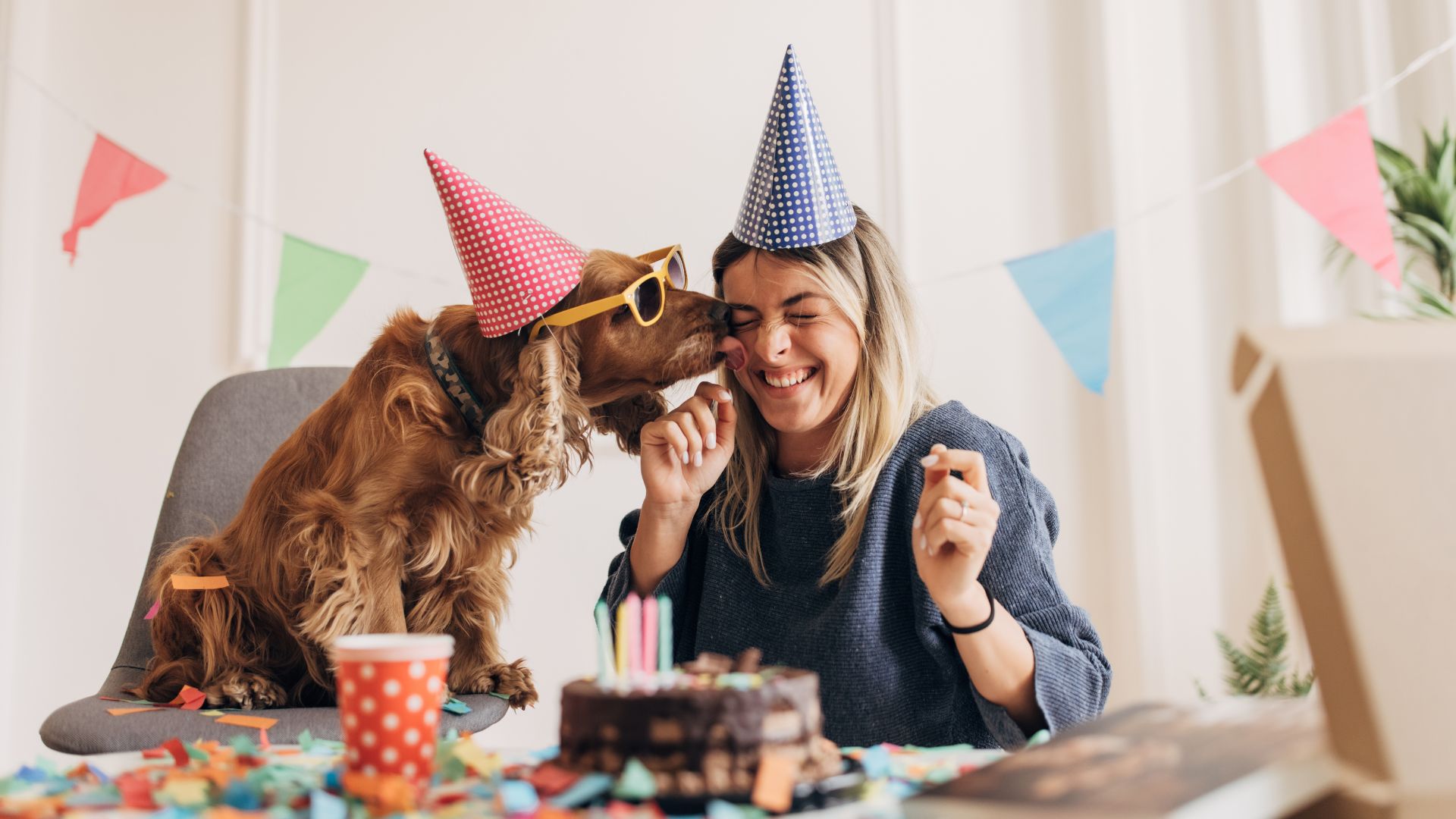Is your dog anxious at night? Vet's guide to helping them settle
Is your dog anxious at night? If so, it’s likely none of you are getting much sleep! Luckily there are measures you can introduce to help your furry friend settle

Seeing your dog anxious at night can be emotionally hard on the whole family. There are several reasons that dogs may experience night-time anxiety, so the first step is figuring out the cause.
It’s important to have your dog checked by a vet before trying to discover the cause yourself so that they can rule out medical reasons for the anxiety.
Once they’ve been given a clean bill of health, then you can start to work on what might be distressing your pup. Luckily there are plenty of measures you can try at home to help settle your dog at night.
- Best calming dog beds: Keep your canine cozy and secure
- How to get a puppy to sleep through the night
- Best puppy sleep aids: Help your pup sleep through the night
Symptoms of anxiety in dogs at night
Symptoms of anxiety vary between dogs and will also depend on the cause. Many of the signs are vague and can be caused by other conditions too. Some of the signs to watch out for include:
- Pacing and restlessness
- Lack of sleep
- Howling, whining or barking
- Destructive behavior, such as scratching at doors or chewing inappropriate items
- Panting
It’s important to note that all of these symptoms can also be caused by an underlying medical condition, so it’s really important that you have your dog checked by a vet before tackling the issue yourself.

Why is my dog anxious at night?
There are many reasons your dog may be experiencing anxiety at night. Some of the reasons are medical, which only a vet could diagnose. Here are some common reasons your dog may be anxious at night:
Age
If your young puppy is howling and unsettled at night, this is perfectly normal behavior! They are adjusting to their new environment, as well as missing their mum and littermates. They also have smaller bladders and may need to toilet a few times through the night.
On the flip side, elderly dogs may start to show signs of anxiety at night. This can be due to pain, or they may be experiencing cognitive dysfunction (senility).
Pain or discomfort
You probably know yourself: any pain or discomfort usually seems worse at night. Without distractions or company, the pain feels more intense. So night-time anxiety can actually be a sign of discomfort. Examples would include arthritis, digestive issues or toothache.
Separation anxiety
You may be surprised to learn that separation anxiety can be an issue even when you’re at home! Some dogs with separation anxiety may feel anxious if you’re in a different room and they can’t get to you, like when you head off to bed.
Outdoor stimuli
Dogs have more acute senses than us. If your dog’s anxiety at night is intermittent, they may be upset by something outside. This could be as simple as a cat or fox visiting the garden, or it may be that they hear a helicopter overhead. Some dogs can sense thunderstorms, and many dogs have intense phobias of storms.
Lack of exercise, or boredom
Dogs need both physical and mental exercise throughout the day. If they aren’t receiving enough of either, then they may struggle to settle at night. They may simply not be tired, or they may be bored.

How to calm dog anxiety at night
The remedy will partly depend on the cause here. Of course, pain or cognitive dysfunction will need medical treatment from a vet.
If your vet has ruled out any underlying health issues, here are some suggestions for calming your dog’s anxiety and helping your dog to sleep at night:
- Make sure your dog is getting plenty of physical and mental exercise throughout the day. Treat dispensing toys or puzzle feeders are good for mental stimulation, as are scent games around the garden.
- Provide a supportive, thick, comfortable bed for them to curl up on. You could try leaving a piece of your unwashed clothing in the bed as a comforter.
- Try leaving a bedside light on.
- Elderly dogs can benefit from a non-slip pathway through the house.
- Pheromone diffusers can work very well for anxiety. You could also use a pheromone spray in their bed area before night-time.
- Make sure you are feeding a good quality diet and your dog’s stools are normal and regular.
- If your dog is bothered by outside noises, consider using a white noise machine or have a dog calming CD playing at a low volume overnight. Draw the curtains so your dog can’t see any visiting animals.
- For puppies or dogs with separation anxiety, consider a crate or bed in your bedroom initially. Take them out to toilet if they whine, but don’t make a fuss or initiate any play. Once they are settling, you can gradually move the crate further away from your bed and outside of the room.
Remember, as frustrating as it can be, your dog is not being naughty! If your dog is anxious at night, there will be an underlying reason.
You should never punish your dog for their anxiety, as this is guaranteed to make the situation worse. Never be tempted to use human sleep aids either, as these have not been tested as safe for dogs and could make your pup very poorly.
If you and your dog are still struggling despite trying these measures, ask your vet to refer you to a clinical behaviorist for more in-depth support.
Summary
No one likes to see their furry friends distressed, it’s heart-breaking. Remember, it’s important to have your dog checked by a vet for underlying medical conditions before trying any solutions at home. Now you have some tools to help calm your dog’s anxiety at night, hopefully, you can all get a better night’s sleep.
PetsRadar Newsletter
Get the best advice, tips and top tech for your beloved Pets
Sarah-Jane Molier graduated in 2009 and has been enjoying life as a vet ever since. She currently works as Head Veterinarian in a small animal practice. Sarah-Jane particular enjoys internal medicine, alongside her managerial role. When not working in practice Sarah-Jane enjoys sharing her knowledge and helping pet parents by writing on a wide variety of animal health and medicine topics. In her spare time Sarah-Jane loves walking Nero (her rescue dog), gardening with her two young children and reading.

